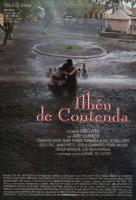Julie Dash
Articles tagged with Julie Dash
Tag Archive
- agricultural work
- Alex kahl
- Amadou Diallo
- angola
- Aqui
- arabes
- Artes africanas
- Bab Cepta
- Bahia
- Berlim
- black feminism
- Black womanhood
- BLM
- Cabo-Verde
- Camaroon
- Carola Saavedra
- circulação de saberes
- city
- colonial war
- crioulo
- culture programme
- decolonisation
- decolonization
- decolonizing museums
- Desert Travel
- diversidade
- Dominique Zinkpé
- drawing literature
- emancipação
- end sars movement
- Epistemodiversity
- ery claver
- escravo
- expression
- Felix Shumba
- festivity
- fight
- film
- films
- future
- game
- guerra
- Hélio Oiticica
- herero
- hip hop
- History
- Ilha de Santiago
- in transit
- land-ing
- Lee-Ann Olwage
- LGBTI
- literatura cubana
- Londres
- lusotropicalismo
- Maré
- Marita sturken
- Meet
- Memorial to Homage Enslaved People
- memories
- Memorization
- menstruation
- Miguel Gullander
- Moçâmedes
- Monte da Caparica
- Monuments in Reverse
- mythology
- Negro
- neo-animists
- north-south division
- painting
- Pedro Maurício Borges
- performance
- Peter Weiss
- polémica
- políticas de ação afirmativas
- produção audiovisual brasileira.
- progressive academia
- próximo futuro
- radical music movement
- reserva
- resistance
- restitution
- revolução
- rijksmuseum
- Routledge
- Ruy Duarte de Carvalho
- São Vicente
- senegal
- sex discrimination
- soldiers
- south african
- suburb
- The Sudanese Revolution
- Tuchangamke
- United States
- Visual Cultural
- woman
- work
- xxxx
- “Sexual Misconduct in Academia”
 It’s about contesting narratives: not only narratives about Africa, Africans, Capeverdeans, and about our diverse perspectives, but also narratives about what cinema is, and what it can be, who gets to watch and be watched, who gets to speak and be heard. It is slow but necessary work. It is the work of re-inscribing our collective imagination with images that belong to us and that, in turn, transform us, and then the world.
It’s about contesting narratives: not only narratives about Africa, Africans, Capeverdeans, and about our diverse perspectives, but also narratives about what cinema is, and what it can be, who gets to watch and be watched, who gets to speak and be heard. It is slow but necessary work. It is the work of re-inscribing our collective imagination with images that belong to us and that, in turn, transform us, and then the world. 